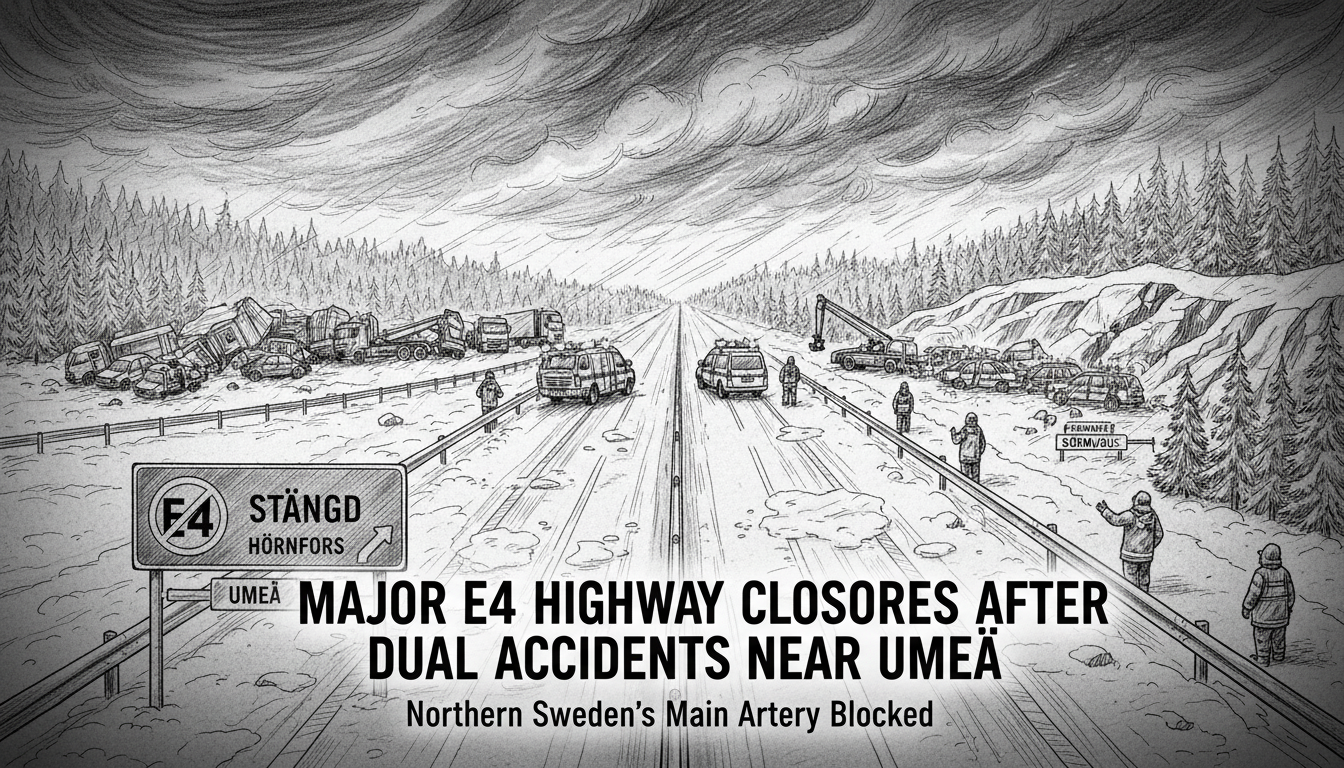Northern Sweden's vital E4 highway faces complete closure today following two serious traffic accidents. Emergency services confirm both directions are blocked between Umeå and Hörnefors after incidents at the Åhedens and Sörmjöle interchanges. The road closures create major disruptions for commuters and freight transport along Sweden's coastal artery.
This highway serves as the main transportation link connecting Stockholm with northern Sweden. The E4 carries essential supplies, daily commuters, and tourist traffic throughout the year. Such closures demonstrate the infrastructure challenges facing Sweden's vast northern regions.
Local residents know this stretch well for its changing weather conditions and heavy truck traffic. The area around Umeå represents one of Sweden's fastest-growing university cities. These accidents highlight the tension between regional development and transportation safety in northern Sweden.
Swedish highway authorities typically respond quickly to such incidents. They coordinate with multiple emergency services across the northern counties. The closure affects not just personal travel but also commercial deliveries throughout the region.
International readers might compare this to similar challenges in Canada's northern territories or rural American states. Sweden's sparse population across its northern half means highway closures have disproportionate impacts. Remote communities depend heavily on these limited road connections.
For expats and tourists, this incident shows why Swedes always check traffic reports before long drives. The country's vast distances between cities mean alternative routes can add hours to journey times. This practical reality shapes daily life outside major urban centers.
Swedish society maintains high expectations for road safety and efficient emergency response. Today's coordinated closure reflects the precautionary approach authorities take with major incidents. They prioritize safety over convenience every time.
The economic implications ripple beyond immediate travel delays. Northern Sweden's industries rely on the E4 for transporting goods to southern markets and export ports. Even temporary disruptions can affect supply chains and business operations.
What happens next? Crews will work through the day to clear the accidents and investigate causes. Travelers should expect extended delays and consider postponing non-essential trips. The situation reminds us how interconnected our modern transportation systems truly are.

